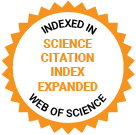Journal of Medical Internet Research
The leading peer-reviewed journal for digital medicine and health and health care in the internet age.
Editor-in-Chief:
Gunther Eysenbach, MD, MPH, FACMI, Founding Editor and Publisher; Adjunct Professor, School of Health Information Science, University of Victoria, Canada
Impact Factor 6.0 CiteScore 11.7
Recent Articles

Mobile phone ecological momentary assessment (EMA) methods are a well-established measure of eating and drinking behaviors, but compliance can be poor. Micro-EMA (μEMA), which collects information with a single tap response to brief questions on smartwatches, offers a novel application that may improve response rates. To our knowledge, there is no data evaluating μEMA to measure eating habits in children or in low-to-middle-income countries.

Obsessive-Compulsive Disorder (OCD) affects 1–3% of the population and is marked by intrusive obsessions and compulsive behaviors that impair daily functioning. As digital technologies have become ubiquitous, their features may interact with OCD symptom dimensions in ways that both exacerbate and alleviate symptoms. While case reports and clinical anecdotes suggest such interactions, systematic investigation of patients’ lived experiences with technology remains limited.

Gatekeeper training programs (GTPs) are a key component of contemporary suicide prevention strategies, equipping community members and non–mental health professionals with the skills to identify, engage with, and refer individuals at risk of suicide. Increasingly, these programs are delivered via the web, offering a compelling alternative to in-person training through greater scalability, flexibility, and cost-effectiveness. However, little consensus exists regarding the design, modes of delivery, and implementation strategies of web-based GTPs. Further, there is a limited understanding of which components affect their usability and engagement.

To meet the needs of individuals diagnosed with autism, internet-based interventions have been developed with a variety of objectives. A deeper understanding of the mechanisms of change may help tailor interventions to individual needs. The communicative behaviors of individuals with autism participating in text-based internet-based interventions remain largely unexplored, as do their potential relations to clinical outcomes. An improved understanding of participants’ behaviors may help therapists better tailor support, promote engagement, and enhance treatment outcomes.

Adolescents are particularly vulnerable to mental health disorders, with over 75% of lifetime cases emerging before age 25. Yet most young people with significant symptoms do not seek support. Digital phenotyping, leveraging active (self-reported) and passive (sensor-based) data from smartphones, offers a scalable, low-burden approach for early risk detection. Despite this potential, its application in school-going adolescents from general (non-clinical) populations remains limited, leaving a critical gap in community-based prevention efforts.

Youth aged 15-24 carry a disproportionate HIV/STIs burden. Recent years different modalities of digital health interventions (DHIs) have been explored to promote safer sex behaviors among youth, but their comparative effectiveness across modalities and relative to non-digital interventions (NDIs) remains unclear.


College students undergo a critical transition from adolescence to adulthood, during which lifestyle behaviors such as physical activity, sedentary behavior, diet, and sleep are key determinants of long-term health. Digital health interventions (DHIs) are increasingly recognized as a promising strategy for improving these behaviors among college students.

The HIV epidemic in the United States disproportionately impacts gay, bisexual, and other men who have sex with men (MSM). Despite the effectiveness of HIV pre-exposure prophylaxis (PrEP) in preventing HIV acquisition, uptake among MSM remains suboptimal. Motivational interviewing (MI) has demonstrated efficacy at increasing PrEP uptake among MSM but is resource-intensive, limiting scalability. The use of artificial intelligence (AI), particularly large language models with conversational agents (i.e., “chatbots”) such as ChatGPT, may offer a scalable approach to delivering MI-based counseling for PrEP and HIV prevention.
Preprints Open for Peer Review
Open Peer Review Period:
-
Open Peer Review Period:
-



















